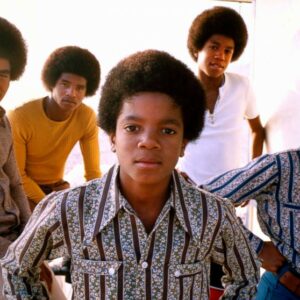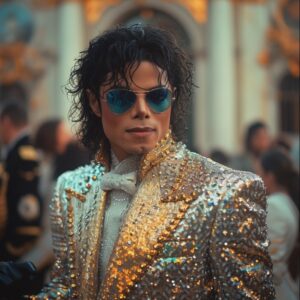When we talk about crossover success stories, Queen Latifah and Ludacris are names that resound with a rare brilliance. They are not merely stars in the worlds of music and film; they are trailblazers whose work has helped to redefine both industries. As a rapper, singer, producer, actor, and activist, Queen Latifah has left an indelible mark on hip-hop and cinema. Ludacris, a Grammy-winning rapper turned actor, brings his energetic persona to every role, carving out a unique path as an artist. Both of them have done something extraordinary: they transitioned from music to acting with a finesse and authenticity that allowed them to stand out in an industry notorious for pigeonholing talent. Their impact goes far beyond the screen and the stage, influencing fans and reshaping perceptions along the way.
Early Collaboration in Music
In the world of hip-hop, authenticity is everything. Queen Latifah, born Dana Owens, emerged in the late 1980s with a sound that was fiercely unique. Her debut album, All Hail the Queen, brought her a following that admired her style, intelligence, and unapologetic strength. She wasn’t just another rapper; she was one of the first female emcees to achieve mainstream success, proving that women could be a commanding force in hip-hop.
Ludacris, or Christopher Bridges, hit the music scene in the early 2000s with his album Back for the First Time, featuring the breakout hit “What’s Your Fantasy.” Known for his unmistakable voice, clever wordplay, and unfiltered swagger, he quickly became a force in the Southern hip-hop scene. Both Latifah and Ludacris are powerhouses of talent with a natural charisma that stands out even in a crowded industry.
Their paths crossed primarily in their advocacy for hip-hop as a legitimate, transformative art form. Although they didn’t collaborate frequently in music, their contributions to hip-hop’s cultural reach played a part in the genre’s acceptance within mainstream media, setting the stage for their eventual partnership in film. Both used their music to communicate ideas about empowerment, self-worth, and societal issues—a mindset they would carry into their acting careers.
Transition to Film
For Queen Latifah, the move from hip-hop to acting seemed inevitable. She debuted as an actress in Jungle Fever in 1991 but truly cemented her Hollywood presence with her role as Cleo in Set It Off (1996), a gritty drama about four women turned bank robbers. Her transition from music to acting was seamless; she brought the same strength and passion to her role on screen that she had in her music. Latifah didn’t just play Cleo; she brought an authenticity that highlighted her raw talent, capturing the pain and courage of a woman pushed to extremes. It was a breakthrough, a moment that proved she could carry serious roles and appeal to diverse audiences.
Ludacris made his Hollywood debut in The Wash (2001) before catching the eye of audiences with his small but powerful role in 2 Fast 2 Furious (2003). His charisma and natural screen presence quickly made him a fan favorite in the Fast & Furious franchise. Like Latifah, Ludacris infused his performances with the spirit of hip-hop, bringing an edge to his characters that helped shape his identity as an actor.
Their background in music gave them a unique edge in film. Hip-hop is about storytelling, about portraying life’s raw, unfiltered realities. This sensibility translated into their acting, allowing them to bring a depth and authenticity to their roles that resonated with audiences worldwide. Latifah’s comedic timing and dramatic prowess and Ludacris’s ability to switch between comedy and action created a winning formula for a wide range of roles in film and television.
Notable Film Collaborations
Queen Latifah and Ludacris’s on-screen chemistry reached its peak in the 2022 Netflix movie End of the Road. Playing siblings who find themselves in a high-stakes game of survival, they took their rapport and history from music into a shared storyline that emphasized their on-screen dynamic. Latifah played Brenda, a widowed mother fighting to protect her family, while Ludacris starred as Reggie, her well-intentioned but impulsive brother. Together, they navigated life-or-death scenarios, confronting villains and their own family issues in equal measure.
Their chemistry was undeniable, transforming what could have been a standard thriller into something more memorable. They shared moments of tension, humor, and sibling rivalry that added layers to their characters. The film’s most iconic scenes were those in which the duo fought alongside each other, blending their charisma and dramatic skill. It was a partnership that showed not only their range as actors but also their ability to bring authenticity to the screen. They didn’t just play siblings; they embodied them, and audiences could feel the connection.
Impact on the Industry and Representation
Latifah and Ludacris’s contributions to film are significant, not only because of their talent but because of what they represent. For many, they are symbols of what is possible when artists refuse to be confined by industry expectations. Queen Latifah, in particular, broke ground by proving that a woman in hip-hop could transition into serious acting roles and become a household name. She carved out a space for herself in an industry that had few roles for women of color, especially those coming from the music world.
Their partnership has helped bridge hip-hop and film, creating a blueprint for future artists who hope to follow in their footsteps. By moving between music and movies, they have challenged the industry’s narrow views on what a rapper-turned-actor could be. They haven’t been content to play roles that align with stereotypes; instead, they’ve chosen parts that reflect depth, complexity, and versatility.
They have also played a significant role in promoting diversity in Hollywood. Their work demonstrates that hip-hop artists can bring rich stories to life on screen, providing narratives that resonate with a broad audience. For Queen Latifah, this has also meant advocating for female empowerment and equality, both in her roles and as a producer. Her work behind the scenes has opened doors for other women of color, making her a pioneer not just in hip-hop but also in entertainment at large.
Future Prospects and Legacy
As we look to the future, it’s thrilling to think about the potential collaborations that could arise between Queen Latifah and Ludacris. Fans have seen their chemistry and know their shared history, creating anticipation for future projects that could push them even further. With the rise of streaming platforms, the range of roles and storylines available to artists is broader than ever. Whether it’s a dramatic thriller, a family comedy, or an action-packed saga, the possibility of more collaborations between these two titans remains exciting.
In a career spanning over three decades, Queen Latifah has left an indelible mark on both hip-hop and Hollywood. Her influence stretches across multiple genres and formats, making her a versatile and respected figure. Ludacris, too, has successfully leveraged his hip-hop roots to carve out a path in film, expanding his influence through both his music and his roles on screen. They’ve changed perceptions, showing that rappers can transition from the microphone to the movie screen with style, substance, and skill.
In an industry that often values youth and novelty, Latifah and Ludacris continue to thrive, proof of the power of reinvention and resilience. They are not only icons; they are symbols of what it means to evolve, to push boundaries, and to remain true to oneself in the face of change. Their legacy is one of courage, determination, and the unyielding belief that art—whether in the form of a song or a scene—has the power to shape, inspire, and transform.
As we celebrate their achievements and look forward to their future work, Queen Latifah and Ludacris remind us of the beauty of versatility and the importance of representation. They are not just stars; they are legends who have proven that with talent, hard work, and vision, the worlds of music and film are only the beginning.





